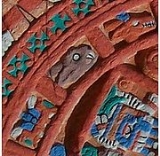
Day
WordNet
noun
(1) United States writer best known for his autobiographical works (1874-1935)
(2) A period of opportunity
"He deserves his day in court"
"Every dog has his day"
(3) Some point or period in time
"It should arrive any day now"
"After that day she never trusted him again"
"Those were the days"
"These days it is not unusual"
(4) The recurring hours when you are not sleeping (especially those when you are working)
"My day began early this morning"
"It was a busy day on the stock exchange"
"She called it a day and went to bed"
(5) Time for Earth to make a complete rotation on its axis
"Two days later they left"
"They put on two performances every day"
"There are 30,000 passengers per day"
(6) A day assigned to a particular purpose or observance
"Mother's Day"
(7) The time after sunrise and before sunset while it is light outside
"The dawn turned night into day"
"It is easier to make the repairs in the daytime"
(8) The time for one complete rotation of the earth relative to a particular star, about 4 minutes shorter than a mean solar day
(9) The period of time taken by a particular planet (e.g. Mars) to make a complete rotation on its axis
"How long is a day on Jupiter?"
(10) An era of existence or influence
"In the day of the dinosaurs"
"In the days of the Roman Empire"
"In the days of sailing ships"
"He was a successful pianist in his day"
WiktionaryText
Etymology
Via < dæġ < < . Not related to Latin dies (< ), but rather to Sanskrit dāhas ‘heat’ < . Cognates include Swedish and Dutch dag and German Tag ‘day’.
Noun
- A period of 24 hours.
- The period from midnight to the following midnight. There are 7 days in a week: Sunday, Monday, Tuesday, Wednesday, Thursday, Friday, and Saturday.
- Rotational period of a planet (especially earth).
- The part of a day period which one spends at one’s job, school, etc.
- I worked two days last week.
- Part of a day period between sunrise and sunset where one enjoys daylight, daytime.
- day and night.

